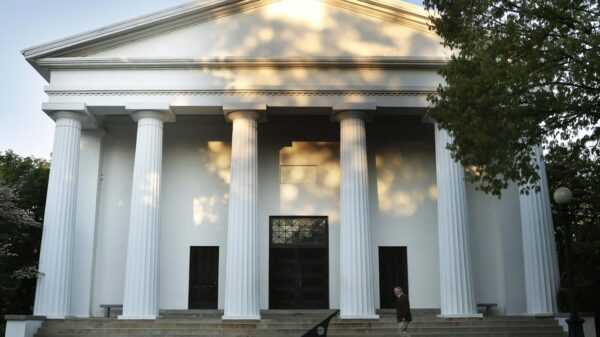A federal court ruling has permitted the National Science Foundation (NSF) to withhold hundreds of millions of dollars in research funding while litigation regarding the agency’s new priorities unfolds. On October 20, 2023, U.S. District Judge John Cronan in New York declined a request from sixteen Democrat-led states, including New York, Hawaii, and California, for an immediate reinstatement of these funds. The states argue that the NSF’s actions jeopardize America’s leadership in science, technology, engineering, and mathematics (STEM).
In his ruling, Judge Cronan explained that he would not issue a preliminary injunction because another court, the Court of Federal Claims, might have jurisdiction over the financial aspects of the case. He also noted that the states had not demonstrated that the NSF’s actions contradicted its mandate.
The lawsuit, initiated in May, challenges the NSF’s new funding priorities and a cap on indirect research expenses, which are necessary for maintaining essential support staff and equipment. In fact, a prior district court had already blocked the cap on these administrative costs. The plaintiffs contend that these changes threaten vital research projects—including studies on misinformation, diversity, equity, and artificial intelligence—that are crucial to advancing scientific knowledge.
Researchers affected by the funding cuts reported receiving only generic explanations for the cancellations. Attorney Colleen Faherty, representing New York, highlighted that researchers were informed their projects “no longer effectuated the program goals or agency priorities.” This has raised concerns among scientists who believe their work contributes significantly to the fields of computer science, math, and environmental science.
Congress has long directed the NSF to promote participation among underrepresented groups in STEM. The lawsuit notes that funding cuts have already disrupted training programs aimed at cultivating the next generation of scientists. In response, a lawyer for the NSF asserted that the agency retains the authority to determine funding based on its evolving priorities, a practice it has upheld since its establishment in 1950.
During the court hearing, attorney Adam Gitlin, representing the NSF, argued that the plaintiff states are trying to impose their judgment over that of the agency. He emphasized that the NSF’s current focus is on creating opportunities for all Americans, without favoring specific groups at the expense of others.
Judge Cronan acknowledged that the NSF continues to fund various initiatives aimed at enhancing representation in STEM. For instance, the University of Northern Colorado has retained funding for eight out of its nine programs designed to improve participation among underrepresented groups.
As the states evaluate the court’s decision, representatives from the attorney general offices of New York and Hawaii have indicated they are reviewing their options. The NSF has chosen not to comment on the ongoing litigation.
This case has significant implications for future research funding and the direction of STEM initiatives across the United States. According to the Associated Press Health and Science Department, which receives support from the Howard Hughes Medical Institute and the Robert Wood Johnson Foundation, the outcome of this legal battle will be closely monitored by stakeholders in the scientific community.








































































